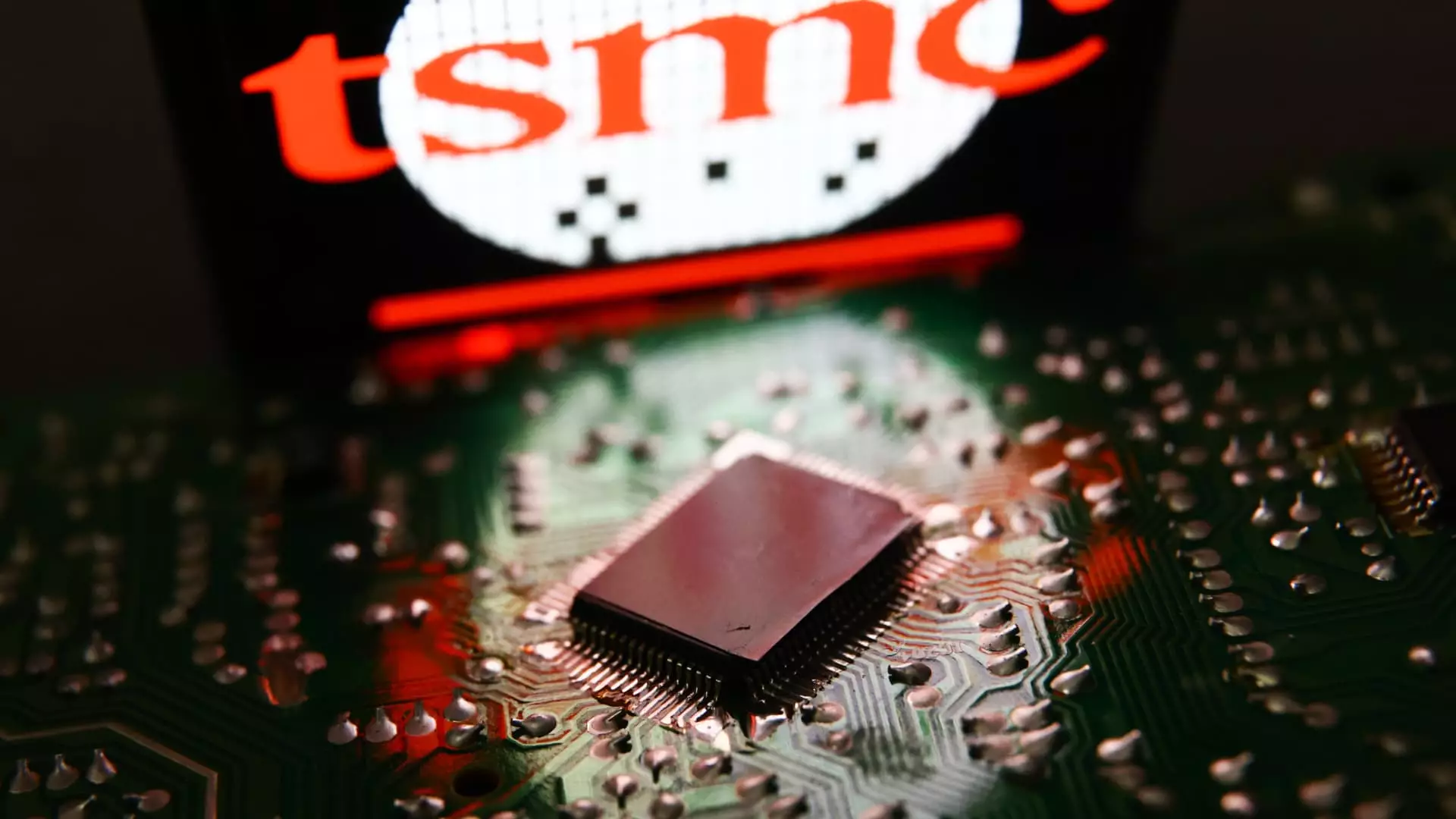The recent decision by the U.S. government to impose strict export restrictions on advanced semiconductor chips produced by Taiwan Semiconductor Manufacturing Co (TSMC) highlights the escalating tensions between the United States and China, particularly in the realm of technology and artificial intelligence (AI). This move, initiated by the U.S. Department of Commerce, is not merely an isolated decision but a part of a broader strategy aimed at curbing China’s technological advancements and protecting U.S. national security interests.
Beginning on the designated date, TSMC has been instructed to halt shipments of sophisticated semiconductor chips, specifically those with designs at 7 nanometers or smaller, to Chinese clients. These chips are crucial for powering AI applications, including advanced AI accelerators and graphics processing units (GPUs). This decision was reportedly motivated by recent findings that a TSMC chip had been incorporated into a Huawei AI processor, which are part of a company currently listed on the U.S.’s restricted trade list. Such actions reveal a proactive and reactive stance taken by the United States against companies that it deems as threats due to their connections with competitors like Huawei.
Huawei, a leading player in the telecommunications and technology sectors, has found itself in the crosshairs of U.S. policies aimed at containing China’s advancements in AI and semiconductor technologies. The revelation that a TSMC chip was found in Huawei’s Ascend 910B AI processor, which is often regarded as one of China’s most advanced AI chips, adds fuel to the fire of contention between the two nations. Given Huawei’s position as a restricted entity, any assistance in its AI endeavors from international suppliers is increasingly likely to be scrutinized or denied, thus further impairing its operational capabilities.
This restriction doesn’t just target Huawei but extends its reach to a broader array of companies, potentially leading to a trickle-down effect within the Chinese semiconductor industry. As TSMC gears up to enforce these restrictions, the implications could stifle innovation and competitiveness in the sector, while simultaneously leading to increased domestic investments in semiconductor manufacturing within China.
The U.S. government’s strategy to impose these restrictions is emblematic of the larger geopolitical chess game being played out in the technology sector. Prior to this, companies like Nvidia and AMD faced limitations related to their AI chip exports to China, showcasing a concerted effort by the administration to adjust trade policies based on national security evaluations. By employing rapid enforcement procedures, such as the “is informed” letter, the Commerce Department can bypass lengthy bureaucratic processes and swiftly implement new licensing requirements on targeted companies.
Furthermore, this directive comes amidst an increasing demand from bipartisan lawmakers for enhanced vigilance over export controls. The growing concerns regarding the effectiveness of the existing export regulations and their enforcement reflect larger issues regarding accountability and protection against intellectual property theft.
The situation continues to be fluid, as the U.S. government has been deliberating further restrictions on technology exports to China, including a potential expansion of the restricted entity list. The anticipated rules regarding foreign exports of chip-making equipment have experienced delays, yet they remain a looming threat that further emphasizes the U.S. commitment to maintaining its technological edge.
As TSMC navigates the complexities of compliance with U.S. regulations, the broader semiconductor industry must prepare for a landscape increasingly defined by geopolitical tension and regulatory actions. The requirement for companies to frequently reassess their supply chains and client relationships with respect to compliance will likely become the new norm.
The imposition of export restrictions by the United States on advanced semiconductor chips to China underscores the intricate entanglements of technology, trade policy, and national security in today’s global economy. This escalation warrants vigilance and adaptability from stakeholders within the industry, as the implications of these decisions reverberate throughout the semiconductor landscape. The unfolding scenario will shape not only corporate strategies but also the future trajectory of technology development across borders.


Leave a Reply